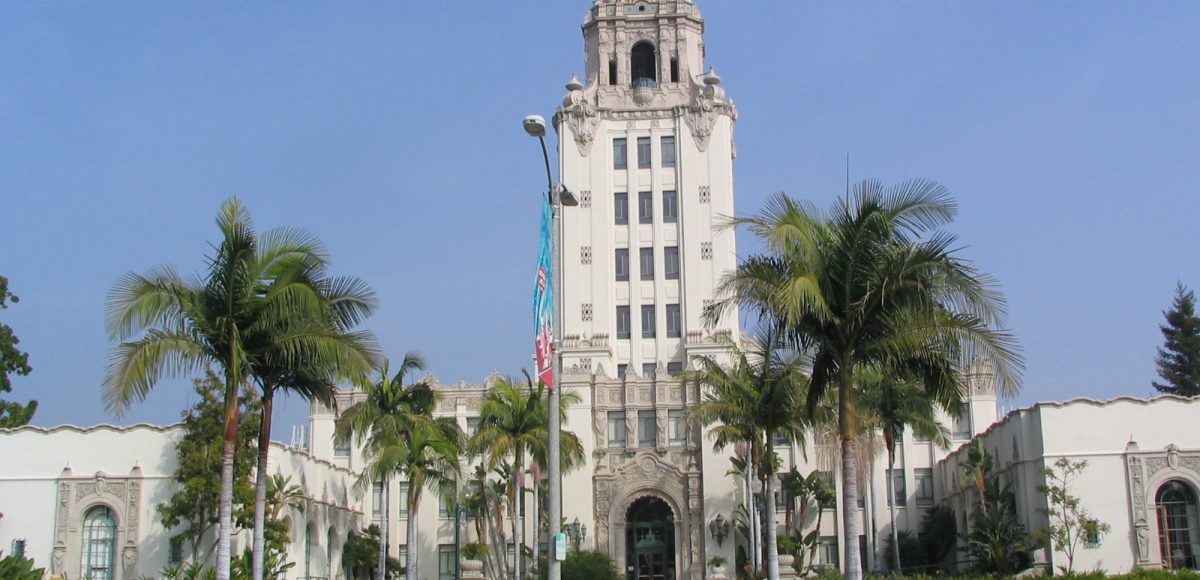With one day to spare before the end of the fiscal year, on June 29 the City Council voted 4-1 to approve a $418.8 million operating expenditure budget for fiscal year 2020/21. Total revenue for all funds is projected to be $452.8 million (including interfund transfers) for the fiscal year beginning July 1.
Councilman John Mirisch, the single “no” vote, said he did not support the budget given that it failed to reimagine operations in a more efficient way.
The new operating expenditure budget represents a decrease of $30.3 million from the 2019/20 operating expenditures of $449.1 million (including interfund transfers). The operating budget for the fiscal year 2019/20 included total revenues of $515.2 million.
While the current operating budget, which draws more revenue than the total amount budgeted to expend, may give the appearance of relative fiscal prosperity, the City’s Capital Improvement Budget, which will be considered for adoption in July, will use a great portion of the apparent surplus. In addition, the City’s General Fund provides a more accurate glimpse into the City’s need to draw its purse strings tighter.
The City’s General Fund, over which the Council has discretion, is one of several City funds, each of which must be used for specific purposes. General Fund revenues, which are expected to decrease by 17.1 percent (not including interfund transfers) over the adopted FY 2019/20 budget according to Budget and Revenue Officer Don Harrison, have been particularly impacted by the COVID- 19 pandemic. Transient Occupancy Tax (TOT) is slated to decrease by $20.1 million; sales tax is forecast to drop $13.7 million; and business tax is projected to decrease $12.3 million.
“We are in uncharted territory. This is something that we haven’t experienced,” said Mayor Lester Friedman.
This year’s proposed General Fund expenditures of $221.1 million (excluding interfund transfers) represent a $25.1 million decrease from the 2019/20 budget. In fact, according to Director of Finance Jeff Muir, the City had originally expected to increase this year’s General Fund fiscal budget before the pandemic hit.
Staff worked with the COVID-19 Ad Hoc committee to develop a strategy of using multiple avenues for reducing expenditures. In addition to transferring $6 million from the infrastructure Capital Improvement Projects (CIP) fund to the General Fund, such measures include an eight percent budget reduction in departments’ supplies and services accounts, implementing a hiring freeze for non-critical positions, and suspending charges and replacements of various vehicles and equipment.
Even with the anticipated $19.9 million budget balancing measures, the Council still needed to decide during its June 29 meeting how to alleviate a forecasted $4.2 million General Fund budget deficit.
While the Council stopped short of taking specific measures to address the budget deficit, which the Council learned just before the vote would increase millions as a result of higher annual insurance renewals, members were united in passing a balanced budget. The Council also agreed to allocate an additional $100,000 to its Nurse Practitioner Program as well as $418,000 to enhance its stockpile of extra emergency food and water supplies.
“At the end of the day, I think the budget that we approve has to be balanced,” emphasized Councilman Julian Gold, the first member of the City Council to comment on the proposed budget. He emphasized that in moving forward with budget talks in the coming months, Council and staff should consider how to best replace services that had been taken from the budget. “I do think that we have to be mindful of the fact that we are moving money around to balance our budget.”
The budget passed by Council included all salary and benefit increases approved through MOUs since the previous budget adoption as well as $5 million to pay down the City’s unfunded PERS liability. To alleviate the forecasted $4.2 million General Fund budget deficit, the Council agreed to increase the amount required to be reduced from employee costs by $2.1 million and allow $2.1 million to be funded through its Budget Stabilization Reserves.
Harrison projected the City would realize a $2.4 million net savings this year if 25 employees avail themselves of an early retirement offer. There also may be the opportunity to realize more savings by carving further into funding for Capital Improvement Projects.
“Given the COVID-19 pandemic and the sudden and unforeseen economic impacts, along with the disruption of normal City operations resulting from the recent protests, consideration of the Capital Improvement Budget has been separated from the operating budget and will be brought to the City Council for consideration and adoption in July,” stated the June 29 staff report, which was authored by Harrison and Muir.
In anticipation of approving the budget, the Council also unanimously voted on June 29 to approve agreements with three business partners that help the City thrive. The agreements included: $148,000 to the Rodeo Drive Committee for marketing purposes (up $18,000 from the previous year); $304,000 to the Beverly Hills Chamber of Commerce for business attraction and retention (down $43,000 from the previous year); and $2.7 million to the Beverly Hills Conference and Visitors Bureau (CVB) to promote the City (down $1.9 million from the previous year).
CVB CEO Julie Wagner told the Courier that after learning the City was projecting a 40 percent decrease in TOT revenue, the CVB’s board and staff “hunkered down” to proactively shave 40 percent from its budget.
“Everything we’ve done we’ve done voluntarily,” Wagner told the Courier.
In addition to furloughing seven employees on April 2, the CVB cancelled most of its international endeavors and asked its vendors to pause. In addition, the CVB cancelled all sales missions and trade shows, while still working on avenues to help keep Beverly Hills forefront in people’s minds.
Wagner said the CVB was preparing to launch a new campaign later this summer entitled “Something to Feel Good About,” which centers around safety, self-care, shopping local, and simple pleasures.
“I just think it’s going to be a hard six to 12 months,” Chamber of Commerce CEO Todd Johnson told the Courier. “We always look forward to collaborating and working with the City on different projects that they deem necessary. We will deliver our continued excellence while working through this incredibly challenging and yet opportune time that we’re all facing.”







